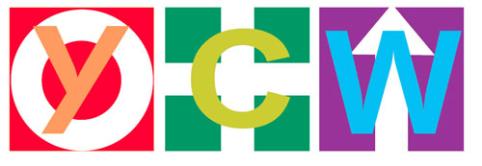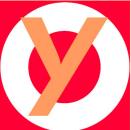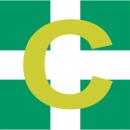
I am grateful to the YCW for the insights it has given me and the courageous example of people systematically applying faith to their real life situations.
My first memory of the YCW (Young Christian Workers) was in the 1950s when the curate in our rural parish proposed to us young men who had just left school to establish a local branch. The YCW and the YCS (Students) was the alive Catholic action of the day that applied faith to life. We discussed the idea but decided that we would rather join the local Junior Farmers. That group was seen as Protestant (later proved to be wrong), but we saw it as more related to our lives as budding farmers.
My next encounter was a YCW information camp for seminarians run by Fr Frank Marriott in the 1960s. A vivid memory was hearing the story of a young worker who could not read well. Rather than give him some spiritual book, he was first given a ‘western’. We were informed that there had to be some immediate interest in reading for him. I thought this was a very practical approach.
In South Korea in the 1970’s I was assigned to be chaplain to a YCW group of girls working in a cloth factory. At each meeting they described their life as workers in the factory, reflected on it in the light of faith and then decided on an action to try. They reported back on the action at the next meeting.
See-Judge-Act Method
This is the tried and tested YCW method: See-Judge-Act. They described the lack of heaters in the factory leading to fights among the workers. Their action in ‘turning the other cheek’ was to stand back from the heaters. They reported that they were too cold; the fights continued.
They then decided to ask management for more heaters (ask and you shall receive). They were brushed off so they decided to role play in preparation for asking again (be wise as serpents). They eventually got the heaters and went on to get women supervisors. This tackled the more serious problem of male supervisors wanting sexual favours from girls assigned the best machines in a piece-work system.
The local young men’s YCW was less successful. Young males tended to work in multiple separate small workshops so that the work conditions they described were disparate and little common action could be taken.
Fun and creativity was part of YCW life. They adapted traditional Korean mask dancing to highlight workers’ social issues which were developed as a national campaign. It was so effective that hundreds of police surrounded the Seoul cathedral to stop people attending a performance.
Social Analysis Techniques
The YCW method was deepened by ‘social analysis’ techniques. It is really an analysis of power structures who has it and how it can be counted.
The INODEP Foundation (Ecumenical Institute for the Development of Peoples founded by Paulo Freire) from France had spread this tool to Asia and many missionaries studied it.
I later used it with farmers in Victoria who were worried that their sons were wild and not interested in the farm. Analysis showed that their sons had no skills other than farming but there was no way that they would ever have the capital to own a farm. This led to much of their sons’ frustration and behaviour.
Used in sermons, mission work
See-Judge-Act became a method not only for my sermons but for other parts of my mission work. When helping develop a new adult catechism our method did not look first to the Gospel. We began by describing the felt needs of people and only then ordering a catechism in response. The result was magical. None of the Gospel or church tradition was left out but the catechesis was ordered and presented so that the listener had a better chance of hearing the message. Lives were transformed. Method used with faith and ecology
Method used with faith and ecology
In more recent times much of my evangelizing work has been on showing the integral connection between Catholic faith and ecological issues. When I wrote a book, Let the son shine, last year, on a faith response to climate change, the YCW method formed the framework.
The climate change theory and implications were described; the Catholic resources available in response was recalled as rich, starting with the incarnation where the divine and material are joined; and the varied action choices open to all believers was explored.
On my ordination card I quoted words from Chapter 10 of Vatican II’s document The Church in the Modern World, ‘to shed the light of faith on the major issues of the times’. It still sounds good. I am ever grateful to the YCW for the insights it has given me and the courageous example of people systematically applying faith to their real life situations.
Fr Charles Rue is on the staff of the Columban Mission Institute in Strathfield, NSW.
SEE
During the YCW meeting members of the group help one another to explore the details of these events/facts/situations to gain a greater understanding and to assess the causes and consequences of what has happened.
Questions to ask:
• Where did it take place?
• Who was involved?
• What actually happened?
• How often does this occur?
• How did the situation affect those involved?
• What was said? Why did this happen?
• Why did people act as they did?
• What are the causes and consequences of what happened?
JUDGE
The group discusses the rights and wrongs relevant to the situations and experiences shared, taking note of what has been discovered in the "See" part.
Questions to ask:
• Should this situation be happening?
• Do you think this is right? What makes it right or wrong?
• Is there anything that we can do to change the situation?
ACT
The group discusses possible ways of responding to the situations described in the "See" part. Actions can be carried out by individuals within the group or by the group as a whole.
Questions to ask:
• Is there anything you/we can do, no matter how small, to improve the situation?
• Is there anything more we need to find out?
• How can we do this?
• Is there anyone we can influence to improve things?
• What action are we going to take?
REVIEW
More often it’s the process we go through on the way to action that’s important. It is always essential to review our actions to see if it was success and what we learned from working together.
Questions to ask:
• Did we carry out the action?
• Did we achieve the original purpose? Did it change the situation of the person(s) who originally brought the situation to our attention?
• What difficulties did we come up against?
• What effect did our action have on us and on others?
• What did we learn from the action?
• How did we feel before? During ? After?
• Is there anything we would do differently?
• Is there any further action we
can take?
Read more from The Far East, June 2011